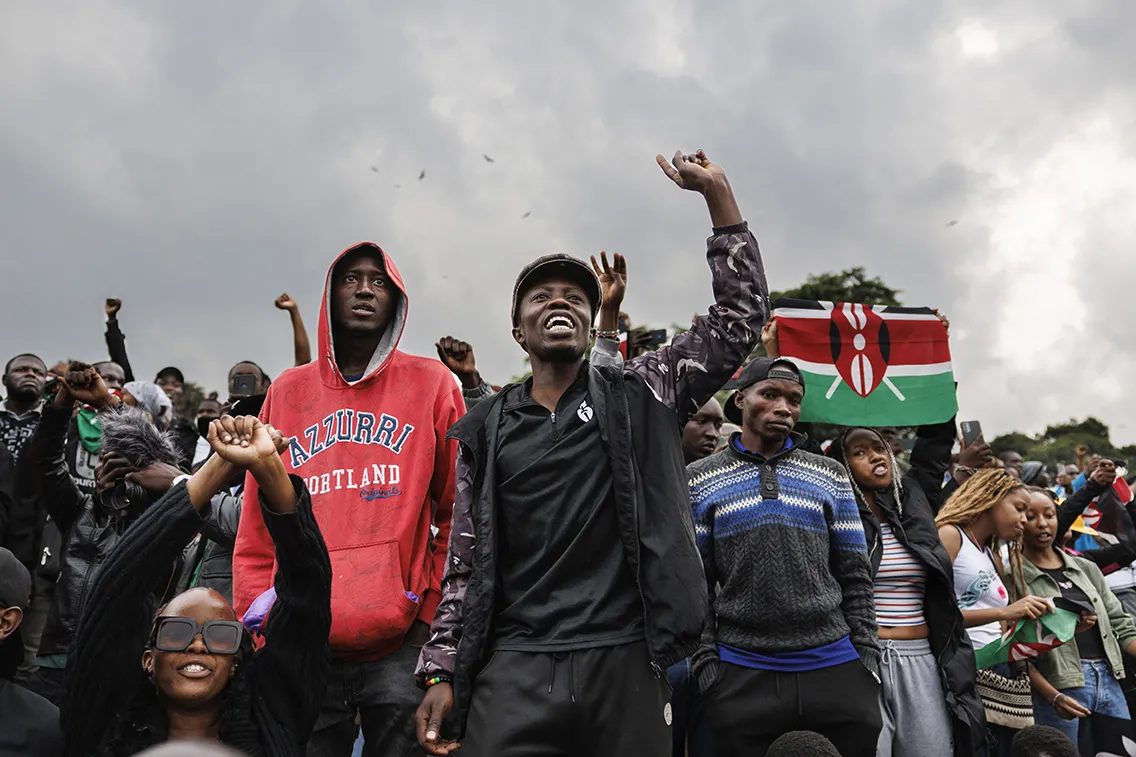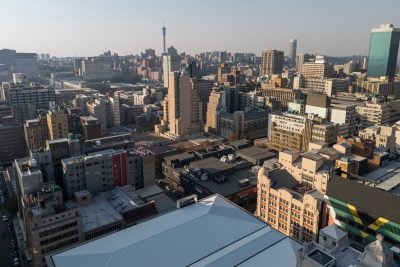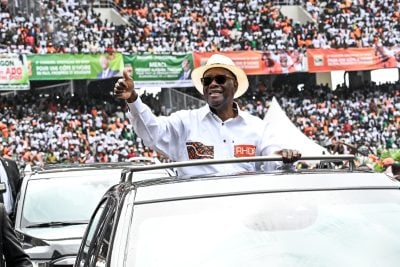The 21st century is witnessing a profound shift in global politics, driven by the emergence of Gen Z—those born between 1997 and 2012—as a transformative force.
This generation, shaped by the internet, social media, and a highly interconnected world, is challenging established norms and demanding a new kind of engagement from their leaders. Nowhere is this more evident than in Africa, where the youth bulge is not just a demographic detail but a defining characteristic of the continent’s political landscape.
In countries like Kenya and Nigeria, Gen Z is reshaping the political discourse in ways that are both revolutionary and instructive. These young people, educated, exposed, and acutely aware of their socio-political environment, are leading movements that question and challenge the status quo
Their activism is not confined to traditional forms of protest but is characterised by a demand for transparency, accountability, and meaningful inclusion in governance.
In Kenya, recent protests have demonstrated the power and resolve of this new generation. These are not the typical demonstrations driven by political party allegiance or rooted in marginalised communities. Instead, they are led by young Kenyans who are tribeless, leaderless, and unaffiliated with any political entity. This generation is united by a shared frustration with entrenched corruption, glaring inequality, and the ostentatious displays of wealth and nepotism that have come to define the political elite.
The heavy-handed response from the authorities, including excessive use of police force, has only intensified their resolve and risked eroding the international goodwill Kenya had been enjoying.
As a nation with significant geopolitical importance in East Africa, this goodwill was bolstered by a strong civil society, a vibrant free press, and growing faith in independent institutions. However, this positive perception is now in jeopardy, as trust in these institutions is compromised by the government’s heavy-handed approach.
Unfiltered exchange of ideas
Similarly, in Nigeria, the protests have been driven by a broad spectrum of discontent, including hunger, poor governance, and the rising cost of living. Despite its vast oil wealth, Nigeria is struggling with deep-seated issues of inequality and mismanagement. The police response to these protests has been harsh, further fuelling public outrage.
Nigeria, Africa’s most populous country and one projected to become the third most populous nation in the world by 2050, is grappling with the challenge of meeting the basic needs of its people while addressing systemic failures. The protests highlight a profound disconnect between the government and the citizenry, underscoring the urgent need for reform and accountability.
These movements in Kenya and Nigeria reflect a broader trend across the continent: the rise of a politically conscious, socially engaged, and digitally savvy youth that is increasingly unwilling to accept the status quo. For African governments, this represents both a challenge and an opportunity.
The challenge lies in recognizing that traditional methods of political communication—press releases, staid press conferences, and top-down declarations—are no longer effective. The opportunity, however, is in embracing new forms of engagement that resonate with Gen Z.
Social media platforms, such as Twitter Spaces, are becoming vital tools for this new generation. For instance, in Kenya, young activists invited President William Ruto to a Twitter Space, demonstrating a preference for real-time, direct communication.
This decentralized platform allows for immediate interaction, an unfiltered exchange of ideas, and direct accountability. It bypasses traditional gatekeepers and provides a space for leaders to connect with their constituents in a way that is transparent and participatory. This kind of engagement is exactly what Gen Z is seeking—an opportunity to be heard, to question, and to hold leaders accountable.
The broader lesson from these movements is that Gen Z is not interested in empty rhetoric or promises of future change. They are demanding immediate action and tangible results. They want to see an end to corruption, the creation of job opportunities, and a government that genuinely represents their interests. They are calling for inclusion not merely as beneficiaries of development programs but as active participants in shaping their future.
For African leaders, this means a fundamental shift in approach. Governments must move beyond outdated communication strategies and engage with young people in ways that are authentic and meaningful. This involves listening to their concerns, involving them in the decision-making process, and utilizing platforms that facilitate open and honest dialogue.
The future of governance in Africa hinges on the ability to adapt to these new expectations and to build a political engagement model that is grounded in transparency, collaboration, and respect.
African governments can no longer afford to be entitled or complacent. They must recognize that Gen Z is not waiting for incremental changes or symbolic gestures. This generation demands real, immediate action and accountability.
Leaders must act with determination and foresight, or risk being left behind by a generation that is ready to redefine the continent’s future. The stakes are high, and the opportunity is clear: embrace the new era of governance or face the consequences of inertia. The time for change is now, and the continent’s future depends on it.
Want to continue reading? Subscribe today.
You've read all your free articles for this month! Subscribe now to enjoy full access to our content.
Digital Monthly
£8.00 / month
Receive full unlimited access to our articles, opinions, podcasts and more.
Digital Yearly
£70.00 / year
Our best value offer - save £26 and gain access to all of our digital content for an entire year!
 Sign in with Google
Sign in with Google 



